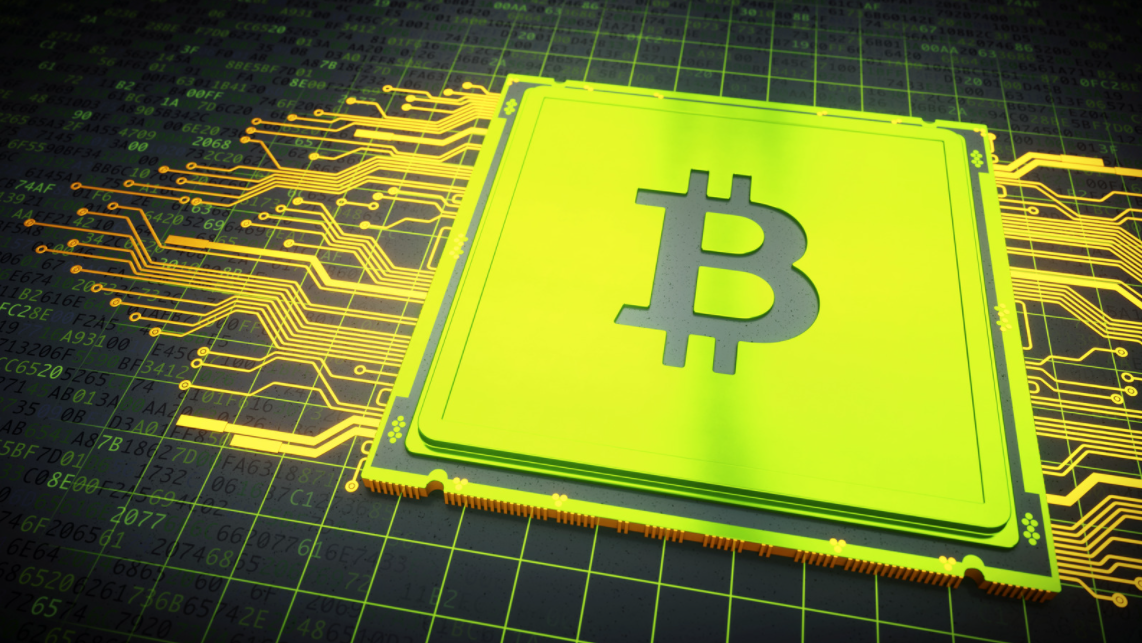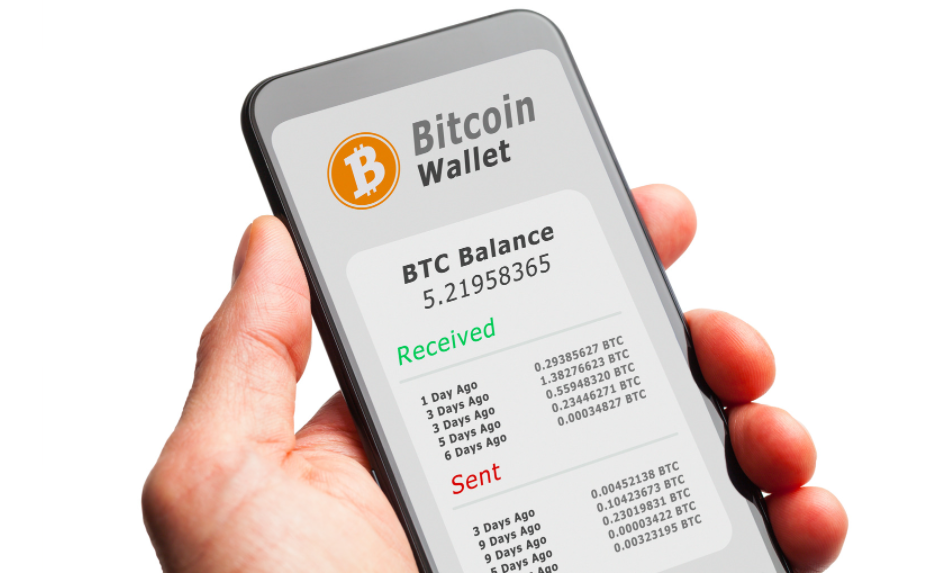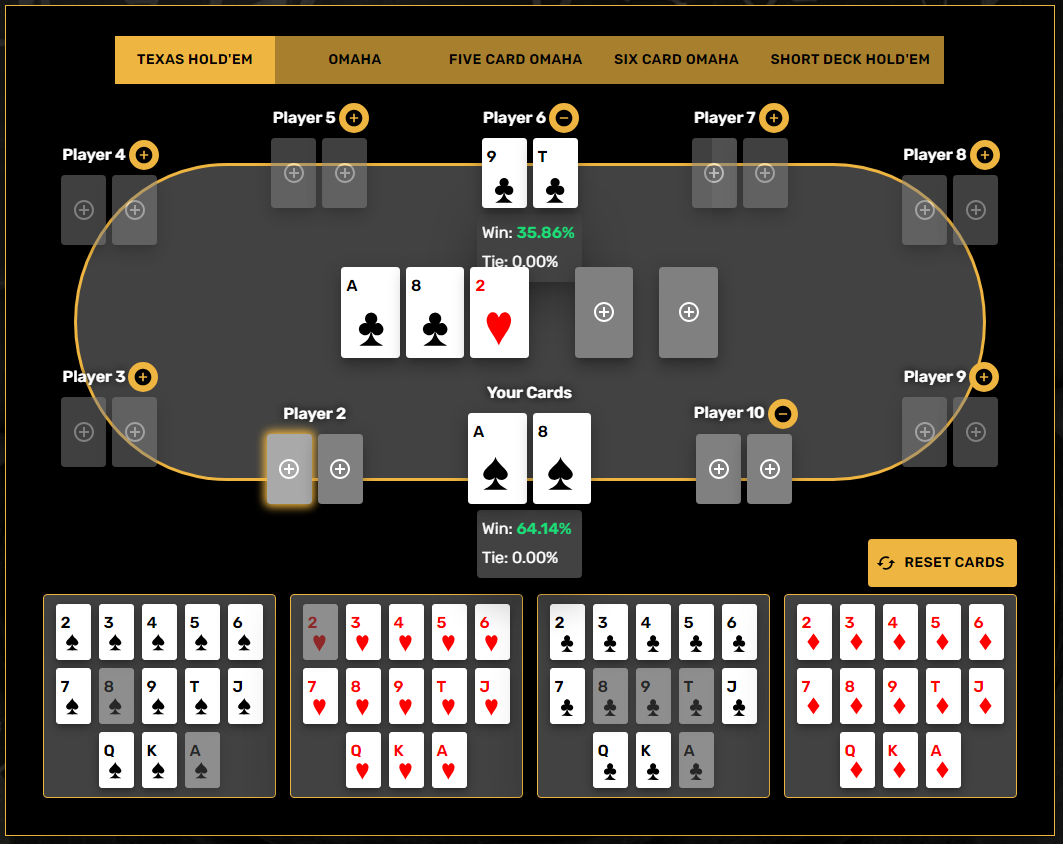Bitcoin was invented by an unknown programmer, or a group of programmers, under Satoshi Nakamoto and released as open-source software in 2009.
The system is peer-to-peer; users can transact directly without needing an intermediary. Transactions are verified by network nodes and recorded in a public distributed ledger called the blockchain.
However, do you know what Bitcoin is, how it works, and how you can obtain some? Moreover, what is the future of bitcoin?
Let’s explore more on bitcoin, and start with a video explaining it briefly:
Understanding Bitcoin
Bitcoin is a form of currency that is created and held electronically. No government or organization can currently regulate it by fully forcing rules on Bitcoin (other than allowing purchases or sells of Bitcoin), and there are no physical coins or bills. However, you can still use bitcoin to purchase items in person or online.
How did Bitcoin get started?
The idea for the bitcoin currency was first written in a 2009 whitepaper by an individual using the alias Satoshi Nakamoto. This Bitcoin whitepaper detailed how the money would work and why you needed it. The following year, Nakamoto released a beta version of the software required to create bitcoins with a mining application called “bitcoin miner.”
Bitcoin Fundamentals
Bitcoin is the cryptocurrency that is taking the world by storm. While it has its risks and exciting opportunities, many people still don’t know much about Bitcoin or how they can use it to their advantage. If you are one of those people, here are some basics to get you started;
- Bitcoin may be a short-term or long-term investment, depending on your ambitions. Investing in bitcoin for the near term requires a longer time horizon and an acceptance of considerable price volatility.
- Bitcoin is Internet-based money. It is not governed or regulated by any authority. It means that you may purchase an extensive range of products and services online with it. You can use it anywhere globally, but it doesn’t have a physical location.
- Is bitcoin a medium of exchange? You can use Bitcoin as a medium of exchange. An asset that you can use to purchase and sell goods and services is known as a cryptocurrency.
- What is the legality of Bitcoin? Most nations have legalized Bitcoin; however, there are a few outliers.
Who Designed Bitcoin?
This popularity has led to questions like “Who created Bitcoin?” and “What is the history behind it?” There are many stories about its origins, but we’ll start from the beginning.
The identity of Bitcoin’s inventor is a mystery. The name Satoshi Nakamoto is a pseudonym, and there is no evidence that anyone other than Nakamoto created the protocol used to create Bitcoin. Satoshi Nakamoto has no online presence beyond his or her initial proposal for the cryptocurrency in 2008, sent to a cryptography mailing list.
Since then, Satoshi has made posts to the P2P Foundation forum in 2009 and 2010. All of them were written in flawless English and mainly discussed technical details of the currency. Bitcoin’s creator may have been motivated by politics or economics.
Some have suggested that Nakamoto is a collective computer working under a pseudonym supporting free software. There are now more than 100 people on the development team for Bitcoin.
Why Is Bitcoin Valuable?
Bitcoins have value because they are useful as a form of money have the characteristics of money:
- Durability
- Portability
- Fungibility
- Scarcity
- Divisibility
- Recognizability
These are based on the properties of mathematics rather than relying on physical properties (like gold and silver) or trust in central authorities (like normal currencies). Bitcoin market capitalization has surpassed even some very large companies.
The market frequently becomes saturated with speculations that push the price up, but it’s a bubble that will eventually burst from time to time when investors get overly excited about Bitcoin. It’s not going to be an overnight collapse, though, due to the sheer number of people who are now invested in it. There have both long bear and bull markets in the history of Bitcoin.
The Bitcoin protocol is also designed to be a deflationary currency which means that only a finite number of coins will ever be created.
How Does Bitcoin Work?
Bitcoin has become a hot topic in the financial world. But, how does Bitcoin work exactly?
Let’s get right into it.
Bitcoin is a virtual currency that allows you to store and exchange value. It uses the encryption techniques used to regulate the generation of currency units and verify the transfer of funds, operating independently of a central bank.
Bitcoin’s most often cited characteristic is its decentralization, differentiating it from fiat money, whose value is controlled by governments.
Here are some specifics on how it all works:
Mining rigs are specialized computers that run the calculations necessary to validate and record a new transaction.
- These computers tackle complicated mathematical problems to verify each bitcoin transaction and add it to the blockchain. Miners are compensated with bitcoin when a new block is uploaded to the blockchain. This incentive encourages miners to continue mining and verifying transactions.
- The aggregate computational power of the miners is employed to maintain the correctness of the ever-growing ledger. “Miners are the most crucial component of the network; they keep the system honest.”
- How can the network entice miners to participate in the ongoing, critical labor of maintaining the blockchain—verifying bitcoin transactions?
- The miner who solves the puzzle first receives a reward. It is known as a block reward. Every 10 minutes or so, a winner is chosen, and the winner adds new valid transactions to the Bitcoin ledger. The premium fluctuates over time, but as of early 2020, each raffle winner received 12.5 bits.
How Do Fresh Bitcoins Get Created?
Bitcoin is a cryptocurrency that has been steadily increasing in popularity since its creation in 2009. It is unique as there is no central bank, and each transaction is recorded on a universal ledger known as the blockchain.
The blockchain is linked to a cryptography algorithm, making it difficult to hack into or manipulate. The blockchain consists of records of Bitcoin transactions, or “blocks.” The blockchain forms the backbone of bitcoin technology, and its genius lies in its simplicity.
Bitcoins are created through a process called mining. Mining is the process of spending computing power to process transactions, secure the network, and keep everyone in the system synchronized together.
It can be perceived as the Bitcoin data center, except it has been fully decentralized with miners operating in all countries and no individual controlling the network.

How to Get Bitcoins?
It’s no secret that the bitcoin cryptocurrency community is on an upswing. Bitcoin’s price is enjoying a surge in value, having made tremendous gains over the years. More people are becoming curious about what Bitcoin and other cryptocurrencies are; many people wonder how to get Bitcoin.
There are essentially two ways to get Bitcoin. There are three ways to get bitcoins: mine them, sell something for them, or buy them from a friend or someone near you.
- The first way is by purchasing it from a centralized exchange or from a p2p marketplace. It requires setting up an account with some form of ID and personal information, depending on the exchange. We recommend Coinbase for beginners because it’s one of the safest exchanges out there and easy to set up. It also allows you to purchase Bitcoin with USD or EUR. Another ways to buy Bitcoin would be through services like LocalBitcoins or by buying Bitcoin ETF shares.
- The second way is by mining it. Mining verifies transactions on the blockchain and adds them to the public ledger. It requires a lot of computing power, which you can get by joining a mining pool or using your computer. Bitcoin miners can either hold or sell their coins, which affects the price of Bitcoin quite a lot.



What Is the Process of Bitcoin Mining?
Mining is an important and integral part of Bitcoin that ensures fairness while keeping the Bitcoin network stable, safe, and secure.
The easiest way to understand mining is to think of it as a lottery where you compete with your mining hardware to earn bitcoins with everyone on the network.
Bitcoin mining is the process by which transactions are verified and added to the public ledger, known as the blockchain, and also the means through which new bitcoins are released. Anyone with access to the internet and suitable hardware can participate in mining.
The mining process involves compiling recent transactions into blocks and solving a computationally difficult puzzle.
What is the Bitcoin Supply?
In a sense, bitcoins are created at a predetermined rate. This is due to the way that the number of bitcoins is halved. A certain amount of bitcoins must be mined for the number of bitcoins to be halved. The number of bitcoins mined by the network each day is cut in half every four years.
Therefore, the total amount of bitcoins ever produced will never be more than 21,000,000. According to the present mining rate, this limit will be reached around 2140.
This means that bitcoin will never suffer inflation, and there will only be a limited amount of bitcoins accessible in the future. At the moment, there are around 15 million bitcoins in circulation.



What Is Bitcoin Blockchain Technology?
A bitcoin blockchain is a distributed database that maintains a continuously growing list of records – called blocks. Each block contains data and some metadata used to prove the existence and integrity of any added data stored within. As the blockchain grows, new blocks are added to the chain in a linear and chronological order through cryptography. This process serves three purposes:
- Confirmation: A block cannot be modified without altering every subsequent block in the chain. Therefore, any attempt to alter information stored on the blockchain would be easily noticeable by comparing it with a previous chain version.
- Immutability: Any information recorded on the blockchain is highly resilient against tampering or revision since you cannot modify blocks without all subsequent blocks being altered.
- Transparency: All verified transactions are available for anyone to view and verify whether or not you executed them properly. It provides greater transparency for any transaction between two parties and helps mitigate potential fraud.
How to Make Use of Bitcoin?
You can use it for online bitcoin transactions between two parties. The currency relies on cryptography to secure all transactions.
Bitcoin can be used for online purchases, Bitcoin transfers and as an investment. Only a computer with access to the internet and suitable software is needed. It has been used in many large transactions where people have made millions of dollars trading it. The biggest profits have been made by early bitcoin miners and investors who have managed to hold bitcoins over the years.
For example, if you want to buy $100 worth of bitcoins, you will need to buy many small amounts of bitcoins called satoshis.
What Distinguishes Bitcoin as a Novel Kind of Currency?
Bitcoin is a new kind of money. A digital currency, like the dollar or the euro, but it’s decentralized – no government or central bank is controlling it.
Bitcoin is controlled by math. Specifically, cryptographic hashing and proof-of-work algorithms. Instead of minting physical coins (like the U.S. Mint does), new bitcoins are created in virtual “mines” by solving complex math problems; each problem solved is called a “block.”
Is Bitcoin Safe and Legal?
The world of ‘cryptocurrencies’ is growing rapidly, with bitcoin being the most popular cryptocurrency to date. But is it safe and legal? According to reports, Bitcoin transactions are extremely secure and cannot be reversed or refunded.
Benefits of Bitcoin
- The biggest benefit of bitcoin is that it is a global currency. You can send money or pay for purchases with bitcoins anywhere in the world, and there are no fees or taxes.
- You can keep Bitcoin in a virtual wallet without storing it anywhere else.
- Transaction costs are very low. The fee for transferring bitcoins to another person is almost negligible. It makes the currency extremely easy to use for daily transactions.
- Bitcoins are easy to use and easy to accept payments in bitcoins from anyone in the world. You can accept Bitcoin payments from anyone, anywhere in the world. It is a very useful feature of bitcoin that makes it stand out from other currencies.
- You can use bitcoins to make purchases on the internet. It is a very useful feature of bitcoin that makes it stand out from other currencies. You can use bitcoins to make purchases on the internet, making it possible for many people to transact business with each other in bitcoins.
Can Bitcoin Be Regulated
And just like the U.S. dollar, the usage of Bitcoin can be regulated to some extent by individual countries and international treaties. However, it cannot be stopped entirely, since it’s running on a decentralized network of nodes all around the world.
This is what makes Bitcoin different: The network on which it runs is distributed across many computers worldwide. So if one country decides to regulate Bitcoins, they can only regulate it within their national borders. Bitcoin will remain unregulated in other countries and elsewhere in cyberspace.
So to answer the question “Can Bitcoin be regulated?” with a simple “yes” would be misleading because it’s very hard to regulate Bitcoin on a global level, given its distributed nature.



Bitcoin Wallets
If you are serious about earning, investing, and owning bitcoin as part of your portfolio, then you will need a secure place to store your coins. After you buy bitcoins, it’s easier to sleep in peace if they’re properly stored.
Different types of wallets cater to different needs. For example, if you deal with large amounts of bitcoins, you will need a secure cold storage solution like a hardware wallet like the Ledger Nano S or the Trezor.
If you are an online merchant, you will likely want to look at solutions like Copay or Electrum for your desktop wallet. Mobile wallets like Copay make it easy to send/receive bitcoins on the go, while Electrum is more suited for those who want more control over their private keys. A great deal of information as well as a feasible wallet can be found also at Bitcoin.com.
You can use paper wallets in cold storage, but these should never be used online and can be tricky to set up if you have never done it before.
Whatever wallet type you decide on, make sure it is well-reviewed by other users before deciding. You wouldn’t walk into a bank and hand over all your cash without reviewing their security levels first, so why would you do that with your bitcoin?
Problems Associated with Bitcoins
Bitcoin is a digital currency controlled by an international network of computers that keep track of all transactions. There are no physical notes, no coins, just transactions, and balances.
Bitcoins are not backed by any precious metal or held in trust by any institution; bitcoins have value only to the extent that they are accepted as payment within the Bitcoin system.
Here are some of the issues associated with bitcoin:
One of the biggest problems with bitcoin is its volatility. The value of the cryptocurrency soared from $13 in early 2010 to more than $1,000 in 2013, then plunged to less than $200 in 2015 before rising again. As its price moves up and down unpredictably, bitcoin is becoming less appealing for common transactions such as buying groceries or a cup of coffee.
Fraud risk. As bitcoins gain popularity, there is an increased risk of fraud and cyber attacks. And unlike cash or credit cards, bitcoins can easily disappear if you lose access to them. In September 2014, hackers targeted Mt Gox, one of the largest bitcoin exchanges, and theft was estimated at nearly half a billion dollars.
Anonymity – there’s no way for someone else to know who you are, so they can’t send you money or ask for identification from your bank if you wrongly make a transaction.
No central governance
There is no government to back it up in a crisis. No bitcoin central bank can step in and save the day if there is a major crash. If you lose your bitcoin, it’s gone for good.
There is also no practical way to use bitcoins for everyday purchases – you can’t buy groceries or gas for bitcoin. How would you pay for things? Do you have to have a smartphone with a bitcoin wallet attached to it at all times?
Also, since bitcoins are not backed by anything real, they can be printed on demand by anyone able to do the computing power to create them (this has happened many times over the history of bitcoin). It creates inflation in the sense that if everyone suddenly started using bitcoins, then their value would drop because you would need more of them to purchase something.
So, All That Said, the Big Question is: Should I Buy Bitcoin?
If you want to and can afford to take the high risk, then yes, you should buy bitcoin. If you feel like buying bitcoin, consider these points first:
- Decide to buy Bitcoin to invest in for the long term. Like any investment, there are ups and downs along the way. Suppose you’re looking to make money on your investment in the next year or two (which is not realistic). In that case, it’s probably not a good investment if you’re like me and don’t care if you ever sell your bitcoin because it’s just fun to learn about and experiment with, then go ahead and buy.
- Buy what you can afford to lose. Bitcoin isn’t a savings account (or maybe it should be!). It’s very risky to invest any money into bitcoin that you need within the next few years because it could very well drop in value during that period. If you have some extra money that you can afford to lose or are willing to take a risk, go ahead and start buying.
The Future of Bitcoin
Bitcoin is a revolutionary digital currency that has the potential to change money. Bitcoin’s creator, Satoshi Nakamoto, designed it to be fully decentralized with no single point of failure.
As time goes on, bitcoin will continue to grow and evolve into an accepted form of currency worldwide. In the future, there will be more active Bitcoin traders than there are day traders who trade equities online daily. It is just a matter of time until it happens. Bitcoin is a revolutionary concept, but it is also divisive and volatile.
It might be effective or unsuccessful, depending on how disruptive bitcoin fans are at present. That is why we assume that many people will continue to oppose utilizing Bitcoins until they cause significant disruption in their personal lives. It would be best to remember that patience is a virtue while persuading individuals to change their minds regarding Bitcoin.
Author


Beasts Of Poker
Editorial team curates and publishes in-depth reviews and ratings of online poker sites by using their extensive industry experience. Content is created by both in-house team of experts and outside authority contributors.









